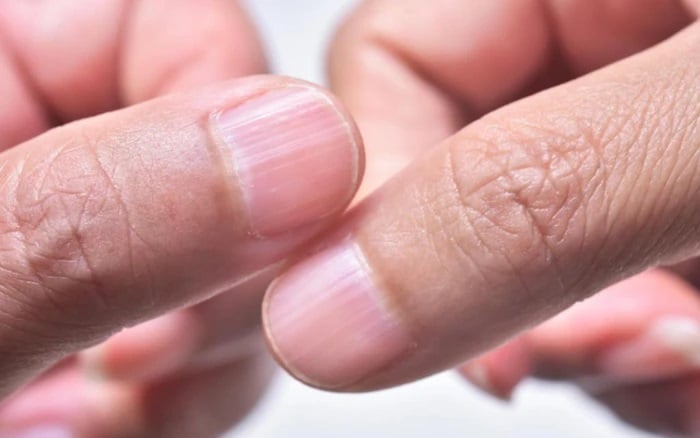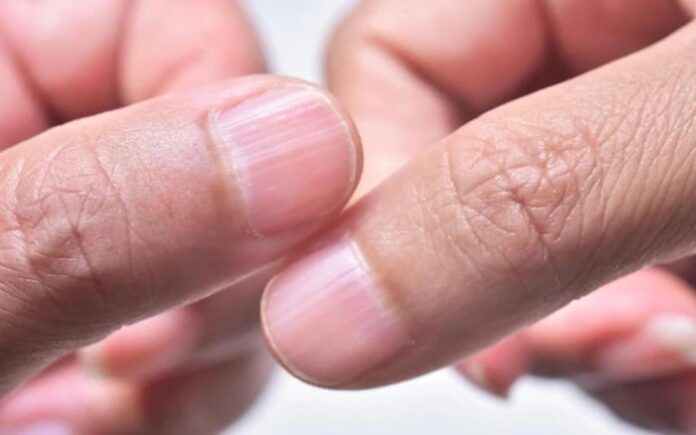1. Lips
Individuals with weak kidneys often exhibit dark lips. This occurrence can be attributed to the reduced functionality of the kidneys, resulting in toxin buildup within the body due to impaired blood filtration. The accumulated toxins can decrease oxygen delivery to various tissues, including the lips, leading to lip darkening. Additionally, kidney dysfunction can cause anemia due to reduced erythropoietin production, a hormone that stimulates red blood cell formation, resulting in less rosy lips due to insufficient hemoglobin.
However, lip discoloration can also be indicative of other factors such as the use of lead-containing lip products, excessive sun exposure, smoking, etc.
Typically, healthy individuals have rosy lips due to the rich vascular supply to this area.
2. Eyes

In today’s fast-paced world, many people experience dark circles due to stress and sleep deprivation.
Interestingly, kidney dysfunction can also manifest as dark circles around the eyes. Research suggests that kidney problems may contribute to these dark circles due to the potential association with reduced vitality and dry skin under the eyes.
In addition to dark circles, individuals with kidney issues may experience swelling around the eyes as a result of protein leakage into the urine instead of being retained in the body.
3. Nails
Healthy nails are usually shiny and have a pinkish hue due to adequate blood circulation and nutrient supply from the blood. However, when the kidneys are affected, the blood supply to the nails is often the first to be compromised. Insufficient blood flow can lead to nail malnutrition and abnormal darkening.
Additionally, those with kidney problems may experience brittle, concave, or detached nails, and some may develop yellow nails with white streaks.

Healthy kidneys: A sign of overall well-being
Tips for Kidney Health
- Stay hydrated: Aim for 1.5–2 liters of water daily, preferably filtered water, to ensure optimal kidney function and reduce the risk of kidney stones.
- Eat healthily: Minimize consumption of salty, oily, and processed foods. Incorporate more green vegetables, fresh fruits, and kidney-friendly foods like salmon, berries, and black beans into your diet.
- Avoid excessive medication: Prolonged use of painkillers or antibiotics can harm the kidneys.
- Don’t hold your pee: Frequent urination reduces the risk of urinary tract infections and potential kidney damage.
- Maintain a healthy weight: Obesity increases pressure on the kidneys, elevating the risk of chronic kidney disease.
- Exercise regularly: Gentle exercises like walking and yoga improve circulation and support kidney function.
- Regular health checks: Especially if you have diabetes or hypertension, which are significant risk factors for kidney damage.
Adopting a healthy lifestyle not only promotes kidney health but also enhances overall well-being.
3 Body Spots That Turn Black, Warning of Weak Kidneys
When the kidneys are not functioning optimally, toxins can build up in the blood and take a toll on your skin. The reduced ability to filter waste results in the appearance of dark patches and an overall dull complexion. The skin suffers as unfiltered blood directly impacts its health, leaving it looking lackluster.





































